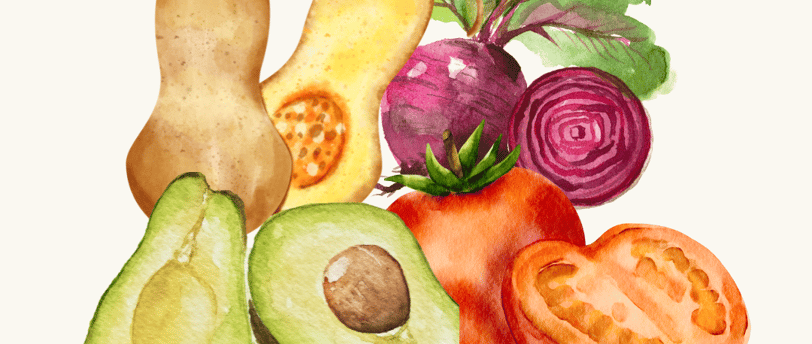handcrafted soups delivered to your door
Our Obsession With Hand-Chopped Whole Foods
2 min read


When it comes to vegetables and fruits, how we prepare and cook them can make a significant difference in their nutritional value. Here, we explore the benefits of eating hand-chopped whole foods and discuss how over-blending or overcooking can diminish the nutrient content of your meals.
1. Nutrient Retention in Hand- Chopped Foods
Hand-chopping causes minimal cell damage to the plant structure, which helps preserve delicate nutrients such as vitamins C and B, along with polyphenols and antioxidants.
Each vegetable or fruit is made up of cells that contain these vital nutrients. When cut into larger pieces, fewer cells are exposed to air and heat, limiting the oxidation process. This helps preserve vitamins and minerals that can otherwise degrade. For instance, vitamin C, a powerful antioxidant, is highly sensitive to heat and oxidation. By chopping your veggies just before cooking, and avoiding prolonged exposure to high temperatures, you preserve more of this crucial vitamin.
2. Improved Digestive Function
Hand-chopped vegetables offer more than just enhanced nutrient retention. Eating foods with a bit of texture, such as larger chunks of fruits and vegetables, requires more chewing, which is the first step in the digestive process. Chewing stimulates the production of digestive enzymes, leading to better nutrient absorption and promoting gut health.
Additionally, the fibrous structure of whole foods remains intact when hand-chopped, which provides your digestive system with insoluble fiber. This type of fiber adds bulk to your stool, preventing constipation and supporting a healthy gut microbiome. Over-blending or juicing breaks down the natural fibers, reducing their effectiveness in promoting digestive health.
3. Balanced Blood Sugar Levels
One of the benefits of eating whole, minimally processed foods is how they affect your blood sugar levels. When vegetables are left in their natural form, they take longer to break down during digestion. This results in a slower release of sugars into the bloodstream, preventing blood sugar spikes.
Blended or pureed foods, on the other hand, often lead to a more rapid release of sugars, as their fiber has been broken down and the body can more easily access carbohydrates. This can result in a sudden spike in blood sugar levels, followed by a crash, leading to fatigue and cravings. Eating hand-chopped whole foods helps to maintain steady energy levels throughout the day.
4. Overcooking and Nutrient Loss
Overcooking vegetables is one of the fastest ways to deplete their nutritional value. High-heat cooking methods like boiling or frying can destroy important vitamins and minerals, particularly water-soluble ones like vitamin C and many B vitamins.
For instance, broccoli is rich in vitamin C and sulforaphane, a compound known for its anti-cancer properties. However, if you overcook broccoli, especially by boiling it for long periods, the vitamin C content can significantly decrease, and sulforaphane is almost completely destroyed. Steaming or lightly sautéing vegetables can help preserve more of these essential nutrients while still making them palatable.
5. Maximising Antioxidant Intake
Antioxidants, such as flavonoids and polyphenols found in fruits and vegetables, are fragile compounds that can easily be lost during aggressive processing like blending or overcooking. These antioxidants are crucial in neutralizing free radicals in the body, which helps reduce inflammation and lowers the risk of chronic diseases like cancer, heart disease, and diabetes.
For example, the vibrant colors of vegetables like bell peppers, carrots, and spinach are due to the presence of carotenoids and flavonoids, both of which are sensitive to heat and light.
